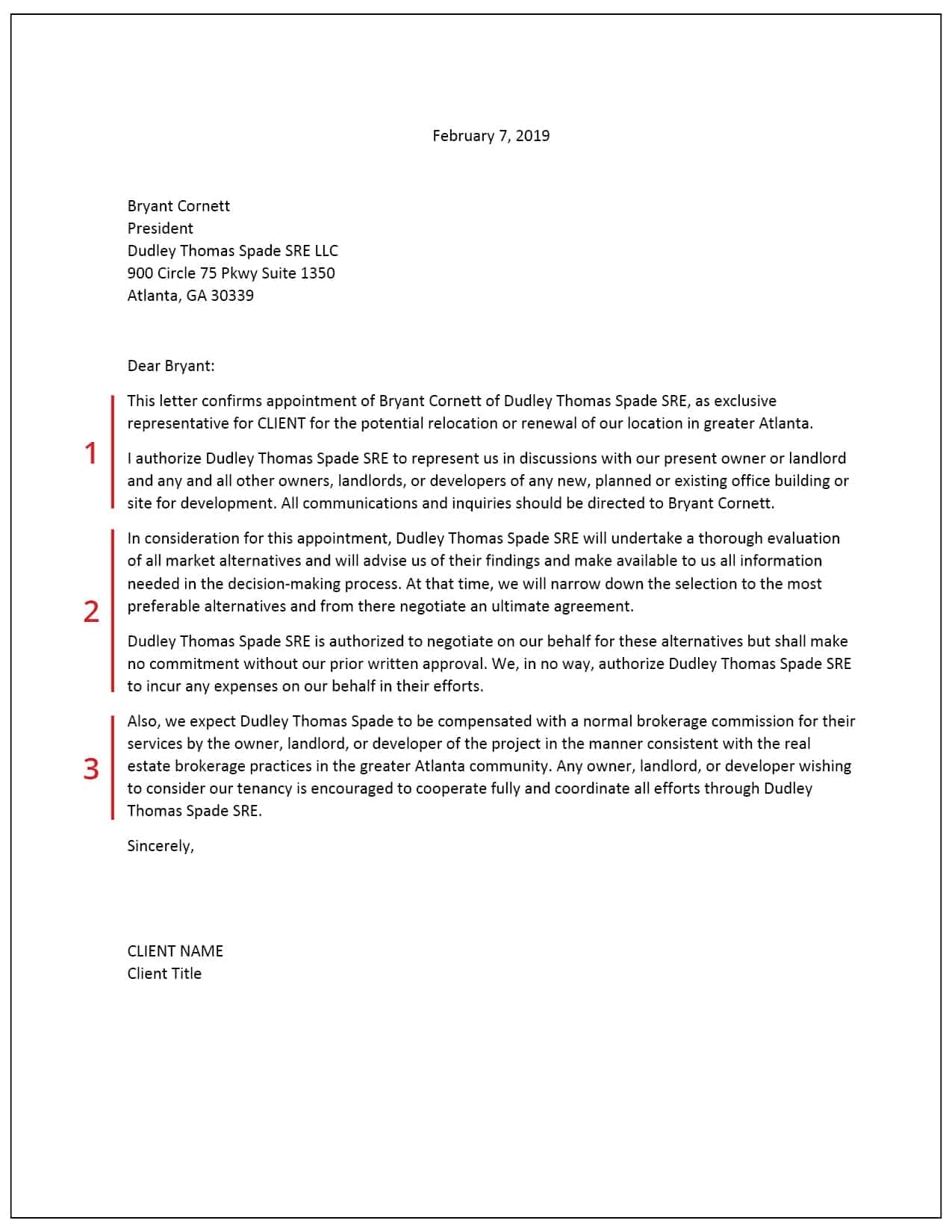Estimated reading time: 3 minutes, 15 seconds
An engagement letter, sometimes called a representation letter, is a contract that simply states that you are appointing a firm/agent to represent you in your real estate transactions. This allows DTSpade to negotiate on your behalf with new or current landlords. This could be for a lease renewal on the space you currently occupy or a brand new space and lease. Here’s an example of a standard engagement letter we use with our clients:

You’ll notice there are 3 main sections:
- Appointment of Firm/Agent – who is going to help you in your real estate endeavors?
- Scope of Work – what exactly are they going to do for you?
- Payment Terms – how are they going to get paid?
You probably also noticed the term “exclusive” in the very first sentence. This means you are agreeing to only work with DTSpade during the duration that our services are offered to you. In other words, if you’re unhappy with our service you are more than welcome to work with someone else – just let us know first.
If I can terminate at any time, why even bother with the exclusivity clause?
If the term “exclusive” makes you feel claustrophobic, you’re not alone. But in reference to your real estate it should make you feel protected. The exclusivity clause is going ensure you receive the best service from your agent.
It may seem tempting to work with multiple agents at once in an effort to create competition and to “cover more ground.” What you’re actually doing is lowering your chances of having your best interests taken into account.
Working with multiple agents will cause:
- Creation of False Demand – If a single landlord is getting calls from multiple agents it creates a false demand. The landlord thinks they have more leverage in the negotiation process, preventing them from lowering the rental rate as much as they would have otherwise, or offering up the tenant improvement or free rent they were willing to in a market where only one agent was calling on the space.
- Poor Service – You may think creating competition between agents will create a sense of urgency, thus getting you the best deal. In fact, the exact opposite is going to happen. Why would an agent put in their best effort for you if you’re going to end up using someone else? Which leads to…
- Mediocre Negotiation – If one of your agents has captured your interest with a listing, they will push to complete a deal as fast as possible – so you won’t find another space with another agent during the duration of the negotiation process. Therefore, they will not fight for concessions such as tenant improvement allowances or an overall lower rental rate.
Our advice is to take the time to screen multiple agents. Pick someone that you believe has the experience and knowledge to meet your needs. Then signing that exclusive engagement letter with them will feel more like a security blanket than a straitjacket.

